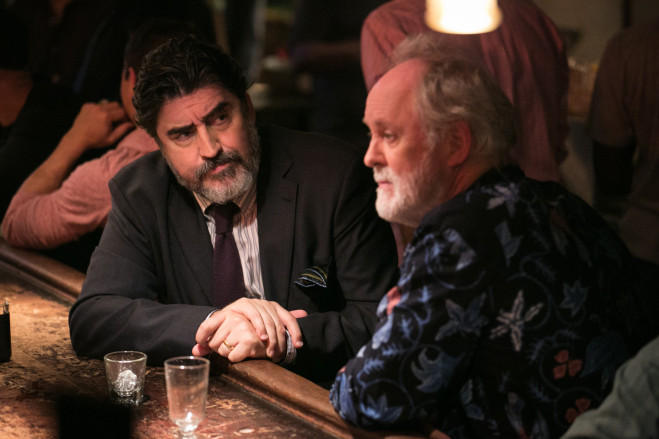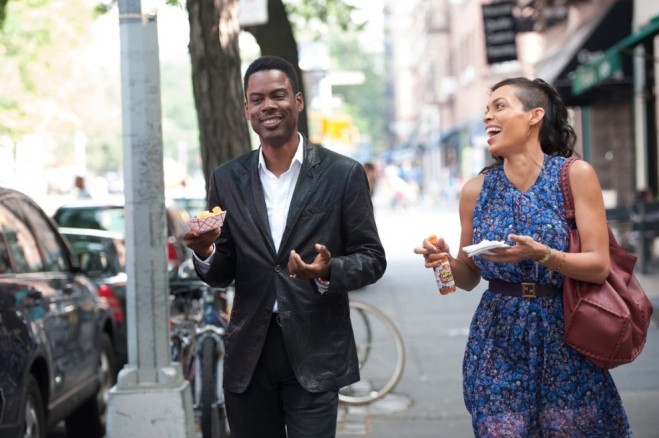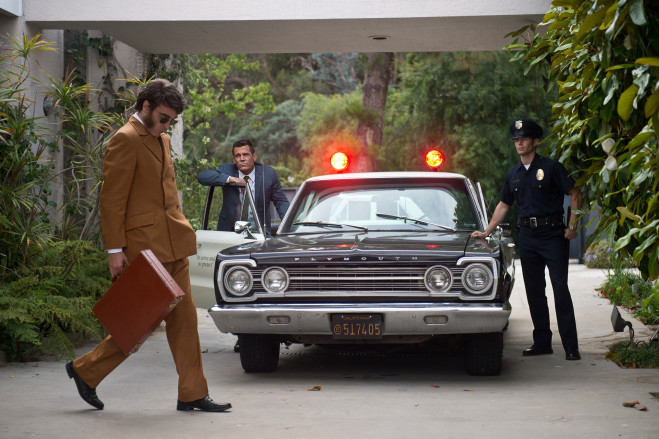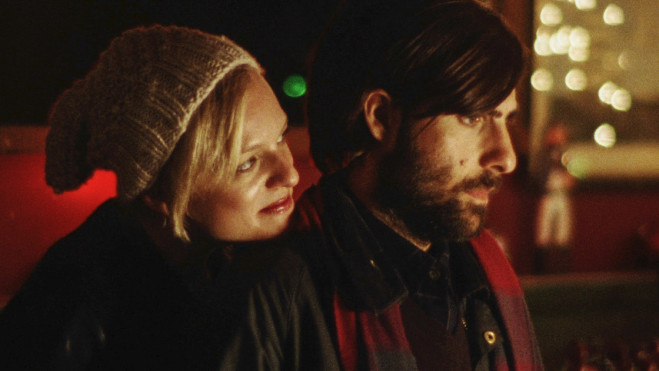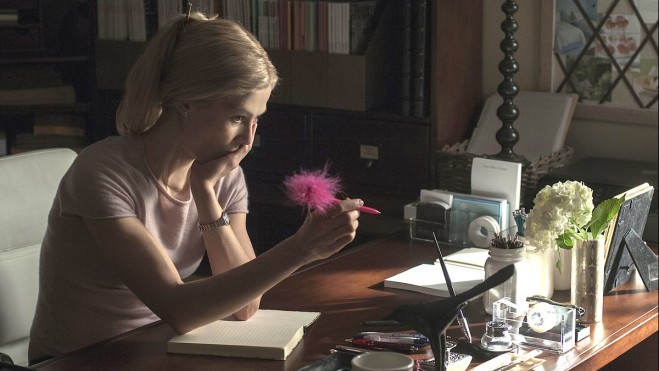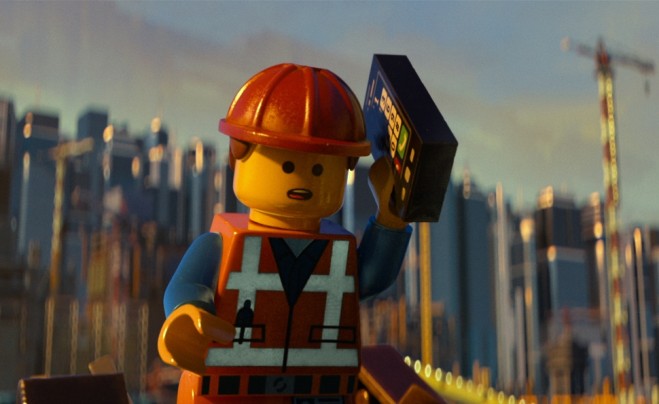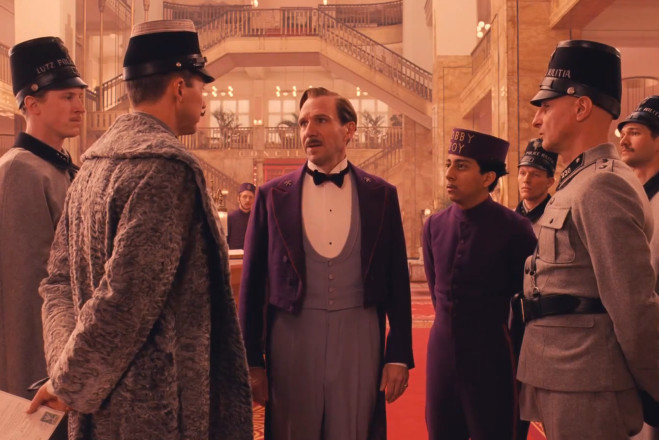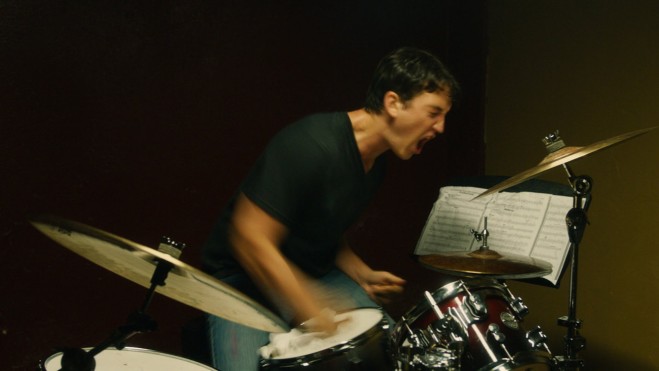There are probably a few clear indicators that 2014 was a perfectly just OK year for movies. One of them would be the Oscar nominations which, yes I still kinda care about, and seem to have a lot less exciting things nominated than most years (they managed to nominate two British period pieces this year! Two!) Then there’s also the fact that I ended up seeing less movies in 2014 than most years, and yet there aren’t that many movies that I regret not catching up with. Still, there was some good stuff, so how about we talk about this good stuff?
Honorable Mentions:
Foxcatcher
Birdman
Only Lovers Left Alive
Nowadays, we live in a mile-a-minute society in which something like true love between two middle-aged men can be tossed off as innocuous. Love Is Strange tackles this idea of an aging gay couple’s struggle to find a place to live in New York City in a way that’s never terribly flashy, though it never needs to be thanks to the timeliness of the subject matter and the strength of the lead performances from John Lithgow and Alfred Molina. And after spending much of the movie separated from each other, it comes as little surprise that a simple conversation at a bar between the two of them would rank among my favorite scenes of the year, because god damn that is some great underplayed acting.
Chris Rock has made it no secret that he’s a huge Woody Allen fan, and for a Woodyphile like myself (mmm, not crazy about that term), it was nice to see Rock channel that influence while still coming up with something that felt like a Chris Rock movie. And by Chris Rock movie, I mean if we can just try and erase the memories of those Chris Rock movies about old dude body swaps and black presidents (but not in an Obama kind of way), and just act like this is Chris Rock’s film debut, since that’s what it kind of felt like. Also, much like Woody, Chris Rock clearly has an eye for talent, as he managed to give pretty much every funny black person you could imagine a chance to shine in Top Five, including legendary black comedian Jerry Seinfeld.
Maybe I’m just a Paul Thomas Anderson fanboy at this point, since if Inherent Vice does actually make any lick of sense, I certainly couldn’t tell you how or why. Yet I still found myself getting wrapped up in this dizzying look into Thomas Pynchon’s end of the ’60s, in which everyone seems to be a part of some kind of cult and there’s no shortage of different shades of paranoia waiting to unveil themselves. Also, even though it sounds like Anderson was trying to do justice to Pynchon more than anything else with this film, it was nice to see Anderson dig back into the kind of sprawling, tragicomic unruliness that made us all fall in love with him in the first place.
My gut response as to why I like Listen Up Philip is to say it’s because I still consider myself a writer first and foremost, and Listen Up Phillip is a movie about writers, and that’s why I like it. But that theory could be completely disregarded when you think about the fact that this movie calls out the two writers at the center of it for being complete assholes that can’t help but ruin the lives of every person that takes it upon themselves to love them. And that in and of itself might be the actual reason why someone like me would respond to Listen Up Philip — because unlike a lot of movies about creative people like myself, it shows the quietly destructive effect that people driven by their own creative impulses can have on others, even though I surely would never do that, right? And thus ends my appropriately self-obsessed prose considering the merits of Listen Up Philip.
I could talk about how great Gone Girl is, but instead I’d like to point out something that has just come to my attention that I’ve never heard anyone talk about before. And it’s that I just noticed that David Fincher has basically become the Star Trek movies of film directors, in that it seems like every other movie of his is a near-masterpiece, while interspersed with each of these hits are movies that miss the mark. Look, I’ll just go down his filmography in chronological order to prove it: Alien 3 (as far as know, not very good), Seven (one of the best murder mysteries ever), The Game (some people say it’s ok, some say it blows), Fight Club (some would say a classic, which maybe it is. Haven’t seen it in a while), Panic Room (No one remembers this shit), Zodiac (a masterpiece), The Curious Case Of Benjamin Button (zzzz…), The Social Network (another masterpiece, and my favorite movie of the past five years), The Girl With The Dragon Tattoo (What was the point of this?) Which then brings us to Gone Girl, which I found pretty thrilling and shocking and has stayed pretty firmly lodged in my brain ever since October. Now I just can’t wait to see whatever mildly interesting misfire Fincher will cook up next!
Yeah, I didn’t think I would go that far into dissecting David Fincher’s career either, so now let’s talk about something we can all agree is pretty awesome. But the question is, is being merely awesome enough to make it on to something as prestigious as one’s Top Ten Movies of the year list? Well, when you’ve got this much kinetic energy, this many sharp one-liners, and even a little bit of societal commentary thrown in there for good measure, yes, this is the kind of awesome I can get behind — Top Ten style.
If Gene Shalit were still reviewing movies, I’m sure he would get a raging pun-boner while trying to talk about Under The Skin, because man, does it get under your skin. The plot of this movie is so bare bones, but also so rife with different weird, uncomfortable themes about body image and humanity and god knows what else, that I’m hesitant to talk about it too in-depth for fear of sounding like I “got it wrong”. All I know for certain is that Under The Skin brought me into a strange world unlike another that I encountered in 2014 — full of bizarre men-brio imagery and a deeply unsettling musical score. It’s not the kind of world I typically go to the movies to get lost in, but in cases like this, sometimes the darkness is just too darn enchanting to resist.
I’ve always liked Wes Anderson, but I’m not sure I’ve ever quite loved him as a filmmaker. I think the main thing is that he’s always seemed to feel obligated to fill his movies with characters that are going through some deep existential crisis, which there’s nothing wrong with in theory, it’s just that Anderson to me feels much more like a superb architect with an eye for craft rather than deeply-felt humanist. This would explain why I couldn’t help but fall in love with this delightful contraption of a movie, as it seems so finely tuned and so obsessively built around it’s own sense of fun that as I stated in my original review, it couldn’t help but leave a big stupid grin on my face for nearly all of it’s 100 minute running time.
Even though I stated earlier that this year may have been a little disappointing in terms of movies, if there’s one thing movies still have the power to do in 2014 that TV still hasn’t quite mastered, it’s the ability to make us really, truly, deeply feel something. In Whiplash, you feel every little thing that Miles Teller is going through as a young jazz drummer at a prestigious music academy. You feel every symbal crash, every snare hit, every thrown chair, every abusive slap to the face from human insult-machine J.K. Simmons. Hell, it even conjured up the personal feelings I had during my first year of film school — those feelings of being young and ambitious and so passionate about art and creativity that you want to crush the whole fucking world with it. What other medium can do that?
And here’s a movie that also conjured up memories of my younger years, specifically that whole 5 to 18 year-old period that one describes as childhood. I really don’t know what to say about Boyhood at this point, since it’s basically been hailed as the consensus Best Movie Of 2014 by most critics including our country’s ultimate critic, Barack Hussein Obama. Maybe you could argue that this movie slides by on a free pass just because it took on a concept that had truly never been done before, and for jaded cinephiles who have seen every cliche-ridden thing under the sun, it’s refreshing to see something that’s that unique on such a pure level. But I think there’s a lot more to Boyhood than just it being able to coyly exclaim “I got here first!” No, there are so many tiny, specific moments in this film that often feel like moments from our own collective childhoods, that much like the boxes of old pictures or video camera footage lying around my parent’s house, it’s something I look forward to revisiting in the hopes of one day figuring it all out, and where it all came from.

